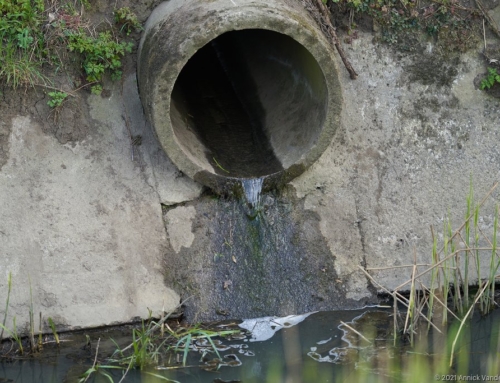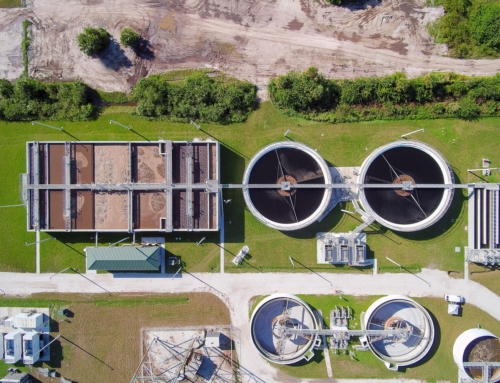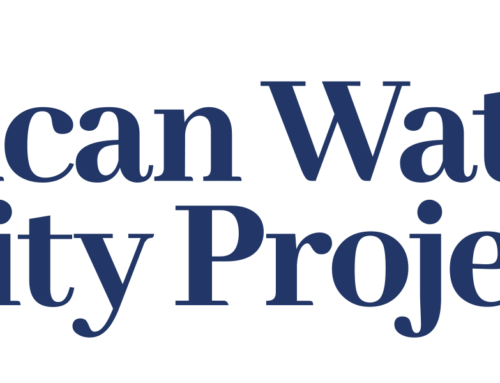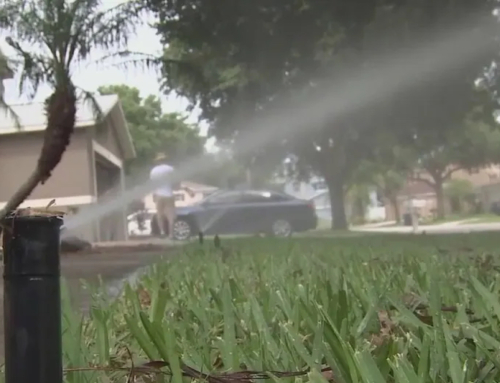Authored by the American Water Security Project’s government affairs director Terry Gibson, ‘New Laws should curb Florida’s sewage treatment crisis‘ originally appeared in the Fort Lauderdale Edition of Coastal Angler Magazine, August 2020.
I don’t have to tell anglers that Florida has a major poop problem. Aging, ailing wastewater infrastructure is major culprit that feeds harmful algal blooms and spreads fecal pathogens into an overwhelming majority of Florida waters. Septic tanks, which pollute by design, represent 30 percent of the state’s wastewater “infrastructure.”
Thankfully, on June 30, Governor Ron DeSantis signed two pieces of legislation into law that will significantly reduce pollution and contamination in waters of the Fishing Capital of the World.
The Clean Waterways Act
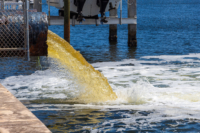 Anglers are forced to live with billions of gallons of sewage spills because local governments that own wastewater utilities have raided the utilities’ revenues, called “Enterprise Funds,” to pay for other government services instead of reinvesting in the infrastructure. By forcing each utility to provide the Florida Dept. of Environmental Protection with plans for maintenance, repairs and upgrades, and an explanation of how they’ll pay for them, the Clean Waterways Act should discourage such short-sighted behavior.
Anglers are forced to live with billions of gallons of sewage spills because local governments that own wastewater utilities have raided the utilities’ revenues, called “Enterprise Funds,” to pay for other government services instead of reinvesting in the infrastructure. By forcing each utility to provide the Florida Dept. of Environmental Protection with plans for maintenance, repairs and upgrades, and an explanation of how they’ll pay for them, the Clean Waterways Act should discourage such short-sighted behavior.
Clean Waterways also makes it the DEP’s obligation to regulate septic tanks instead of the Dept. of Health, which many critics accuse of aiding and abetting the septic tank industry. It strongly discourages new construction that relies on septic tanks and provides an infrastructure grant fund to lower costs for rate payers.
In summary, the 111-page Clean Waterways Act provides: 1) new stormwater regulations that reduce nutrient loads; 2) upgrades to domestic wastewater infrastructure; 3) conversion of polluting septic tanks to municipal systems; 4) improved regulation of sewage biosolids application, as well as; 4) advancements in best management practices to reduce agriculture nutrient contributions.
Senator Debbie Mayfield (R-Melbourne) Rep. Bobby Payne (R-Palatka) championed Clean Waterways. It passed unanimously.
The Environmental Accountability Act
The Environmental Accountability Act is the enforcement arm. Wastewater utilities viewed the meager fines for spilling sewage as the cost of business. Environmental Accountability increases fines by 50 percent to $15,000 per day for sewage dumping and other point sources of pollution. The fines may go into a trust fund that may only be spent on repairs, upgrades and other efforts to improve water quality.
Rep. Randy Fine (R-Melbourne), and Senator Joe Gruters (R-Sarasota) championed the Environmental Accountability Act. It also passed unanimously.
Federal Action
Our organization has also worked on the federal level to increase funding for water infrastructure repairs and improvements. Congress significantly increased funding levels. There is also a great deal of bi-partisan support for Covid-19 stimulus packages that include massive funding for water infrastructure.
What You Can Do
Reach out to your elected officials to express your concern about sewage pollution. The Clean Waterways Act and the Environmental Accountability Act will now go into the rulemaking process, where the “teeth” get applied, or not. Meanwhile, we need support on all levels of government to fix what is at a minimum a $16.5 billion problem in Florida.

Jensen Beach-based Terry Gibson is the Government Affairs Director of the American Water Security Project. He is a veteran outdoor writer and has served in many editorial capacities at several fishing publications.

